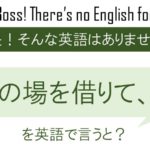
There are a significant number of “Japanesey” cultural activities that local people practice or do, and which expatriates living in Japan have ample opportunity to experience if they are so inclined. Some examples of cultural activities include tea ceremonies, flower arrangement and calligraphy. I strongly believe that people from overseas countries should avail themselves of the opportunity to experience these activities, for two main reasons. Firstly, we can experience authentic Japanese culture first-hand by doing so. Secondly, they provide us with an ideal opportunity to get to know members of our local community and to make Japanese friends.
Despite these honorable intentions, I must confess that I have only ever dabbled in Japanese culture, rather than doing or practicing any of it on a regular basis. The closest I have come to doing so would be taking Japanese lessons once a week for the three years that I lived in Nara. Instead, I will share my experiences of the cultural activities that I have dabbled in.
My first taste of a Japanese cultural activity was the most brutal. I had watched a documentary on Australian television about the “Naked Man Festival” held in Japan in winter, so I jumped at the opportunity to participate in it. This enthusiasm was rather misplaced because parading though the sub-zero temperatures of Okayama City in winter dressed in nothing more than a fundoshi (loin cloth) and tabi (traditional socks) turned out to be one of the most uncomfortable experiences of my life.
My second experience was considerably more comfortable. The Basara Festival is a traditional dance festival held in Nara City every summer. The routine and background music strike me as being somewhat more modern than a Bon Odori dance festival, though. We performed as a group, in front of significant numbers of onlookers, at multiple locations, over the course of a weekend. This experience, perhaps more than any other, gave me the feeling that I was doing something that I would never have had the chance to do back home.
My third experience was another rewarding one. The Hasedera Festival is a traditional portable shrine (mikoshi) carrying festival held in the town of Hasedera in Nara prefecture, every autumn. For this festival, teams of participants clad in hapi (a traditional Japanese coat) carry a not-insignificantly sized wooden shrine around the town from morning to evening. This experience was perhaps the one which gave me the greatest sense of camaraderie and community involvement, with expatriates and locals teaming up to achieve the goal of carrying the shrine around a designated route.
In summary, although I have only dabbled in various Japanese cultural activities, rather than making an effort to dedicate myself to practicing or doing one of them on a regular basis, my experiences of dabbling in them have been immensely rewarding ones. I have experienced aspects of the traditional side of Japan, far from the hustle and bustle of modern city life. I have also been able to partake in these activities alongside local people and feel a sense of making a contribution to the local community by doing them.
Ming
Vocabulary
avail yourself of something (phrase) – to take the opportunity to use or do something
dabble (verb) – to be involved in something for a short time in a way that is not serious
misplaced (adjective) – a feeling or opinion that is not suitable for a particular situation
onlooker (noun) – someone who watches something happen but does not take part in it
camaraderie (noun) – a sense of friendship and trust with those around you
英語学習をフルサポート!
マンツーマン&コーチングの英会話教室
























